There’s no place for complacency in higher education today, as colleges continually evolve to meet the needs of an ever-changing workplace.
The University of Scranton has long taken a proactive, innovative approach to its academic offerings, ensuring students receive not only a Jesuit education grounded in excellence and personal attention, but one that sets them on the path to a rewarding career.
This philosophy can clearly be seen through an ambitious goal of the University’s Strategic Plan to “advance the University into the future by challenging ourselves to educate and support an ever-changing, diverse landscape of students in ways that are affordable, relevant and innovative.” One area of clear progress is in graduate programs.
During the past few years, all three of Scranton’s colleges have added several in-demand advanced degrees, with three of the most recent being the College of Arts and Sciences’ Master of Science in Cybercrime Investigation & Cyber Security, the Kania School of Management’s Master of Science in Business Analytics, and the Panuska College of Professional Studies’ Master of Science in Speech-Language Pathology.
Web Exclusive
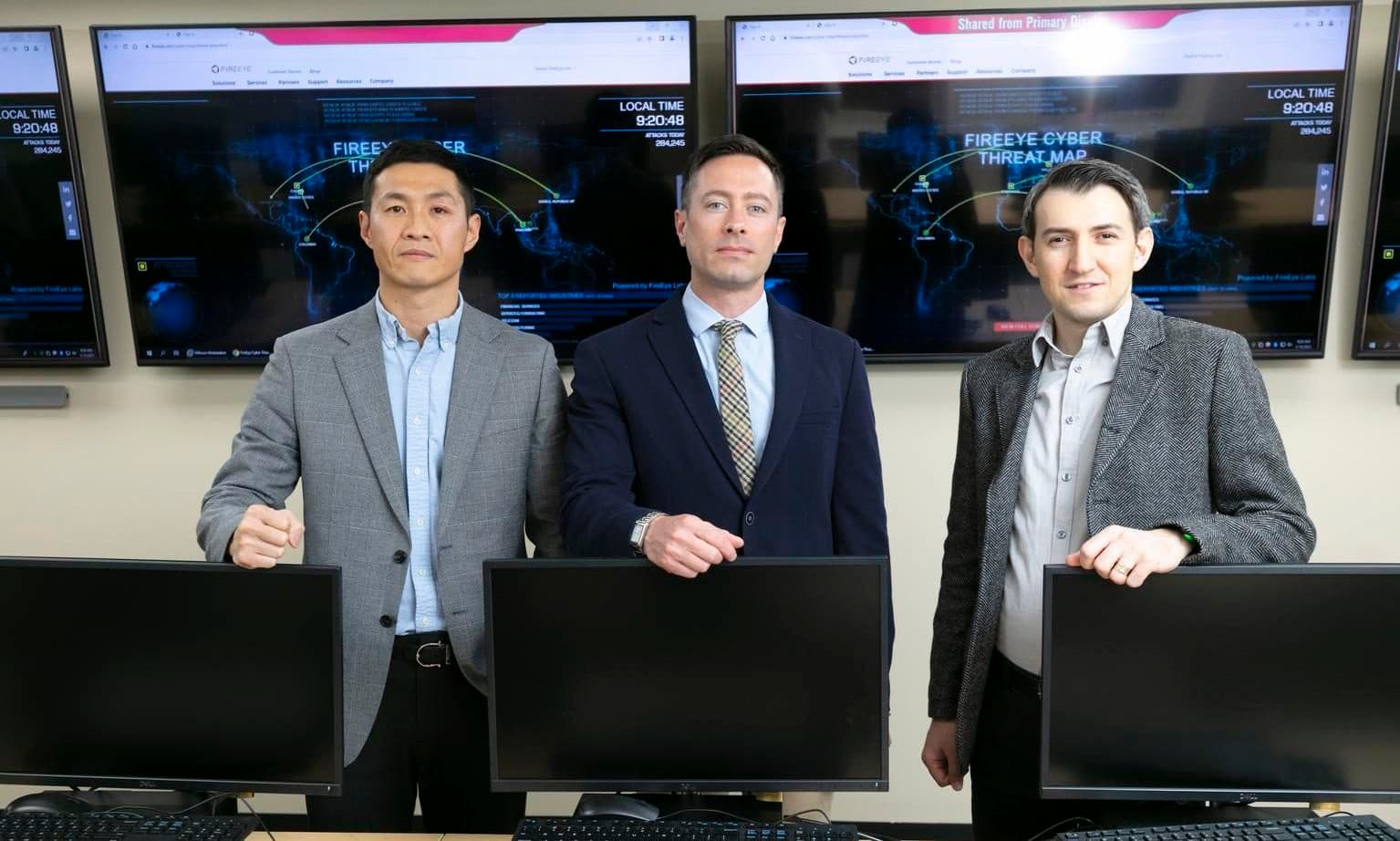
Graduate Education Expansion
Get more insights from students, faculty and administrators on the University's ever-expanding portfolio of innovative market-focused graduate programs.
Read ArticleMeanwhile, the University recently introduced its first Ph.D. program, in accounting, and last year formed a partnership with LeMoyne College that will allow five students direct entry into Le Moyne’s Physician Assistant (PA) program after graduation, and five Le Moyne students a guaranteed place in the University’s Doctor of Physical Therapy (DPT) program.
“If we are going to continue to endure and to excel … we must pay more attention to the delivery of high-quality market-driven graduate programs, as well as programs for non-traditional adult students,” University President Rev. Joseph Marina, S.J. said.
“This will move the university forward in maintaining excellence in traditional undergraduate education, as well we should, but also breaking into new markets where we have significant opportunities for growth. This fall we had nearly twice the number of international graduate students than we did last year, and the overall number of graduate students is 40 more than it was last year. These are important growth factors that we need to cultivate,” he added.
Michelle Maldonado, Ph.D., interim provost and senior vice president for academic affairs, said the University stands at “an exciting moment in its educational growth” as it actively expands its portfolio of graduate programs.
“While our undergraduate programs are definitive of the Scranton education, too often we forget our rigorous contributions to graduate education,” Maldonado said. “With online, in-person, and hybrid programs, The University of Scranton offers a wide variety of instructional modalities to meet the needs of our students. And the inauguration of our first Ph.D. programs marks a new era in graduate education at the University.”
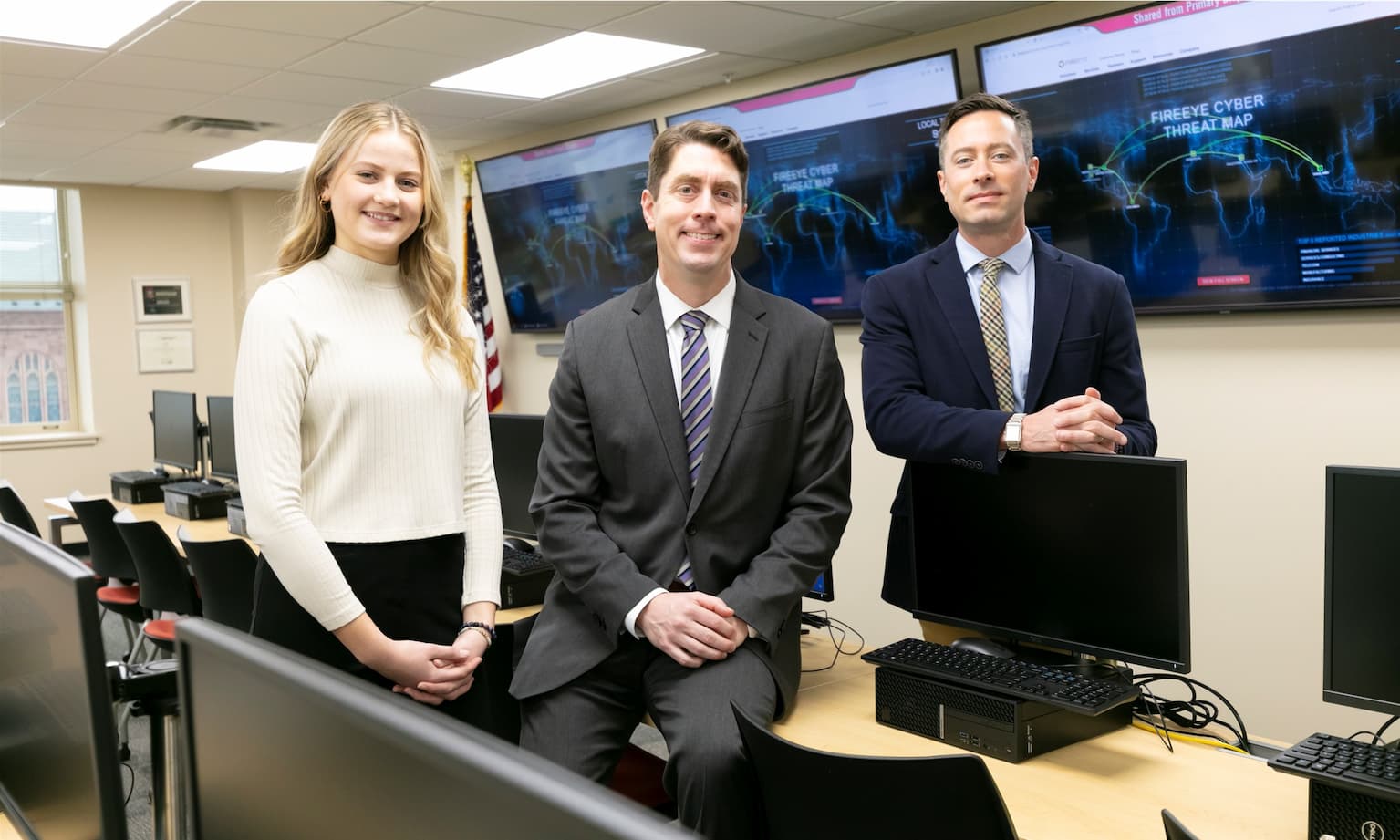
M.S. in Cybercrime Investigation & Cybersecurity
Launched in the fall, the University’s College of Arts & Sciences 30-credit, online MS in Cybercrime Investigation & Cybersecurity comes on the heels of their thriving new Cybercrime and Homeland Security undergraduate program.
In hopes of attracting young professionals, international students and current University students looking to continue their education, the program can be completed in an accelerated one- or two-year timeframe. The curriculum is aligned with the National Initiative for Cybersecurity Education (NICE) Cybersecurity Workforce Framework and is designed to prepare students for several professional certifications, including Certified Ethical Hacker (CEH) and Computer Hacking Forensic Investigator (CHFI).
David Dzurec, Ph.D., interim dean of the College of Arts and Sciences, said the University sees the program as “an opportunity to establish a spot in the market” for this highly competitive field.
“And we wanted to make sure that there was an opportunity for our current students to accelerate into the program,” Dr. Dzurec said. “That was really important, because it allows our undergraduate students to benefit directly from these graduate programs.”
While many cybersecurity programs are part of computer science departments or business schools, the University’s is housed within the Department of Criminal Justice, Cybersecurity, and Sociology, said Michael Jenkins, Ph.D.,’06, professor and chair of the Criminal Justice department.
The rationale for that is simple," Dr. Jenkins said - students will need to be just as skilled in criminology as they are in the technological aspects of the job.
“We’re training students to work within the criminal justice field, from the county DA’s office and the state police all the way up to federal agencies like the FBI. But private corporations want students with backgrounds in criminology and criminal justice, as well,” Dr. Jenkins said. “Determining why a cybercrime has occurred is very complex, so we need to train our students to develop the expertise to carry out these investigations.”
Sixteen students have enrolled in the program, “which is huge for a first year,” said Dr. Jenkins, crediting the faculty with going above and beyond in developing the curriculum.
This spring, University senior Anastasia Lepka ’23, is taking her first two courses in the program while completing her bachelor’s degree in criminal justice. She intends to complete her master’s in a year, then pursue a job in the federal government.
Her decision to continue her education at the University was “kind of a no-brainer.”
“I knew the professors, I knew it would be a quality program, and I knew I would get so much out of it,” Lepka said. “I knew I wanted to work in the realm of preventing cybercrime. We live in a world where cyber is only going to grow, and cybercrime is only going to grow along with it. That’s something I want to prevent and reduce. And being able to complete the program in a year so that I can get out there and start my career was very appealing to me.”
M.S. in Business Analytics
The Kania School’s Master of Science in Business Analytics began in the fall of 2020, following the creation of the MBA specialization.
The practice of evaluating reams of data that allow organizations to make more informed decisions, business analytics is now among the fast-growing fields in the world. Jobs can be found in any industry - from insurance and banking to health care and higher education.
Available both online and in-person, the 30-credit program is designed to prepare students to use advanced techniques such as data visualization, predictive analytics, and prescriptive analytics to solve complex business problems.
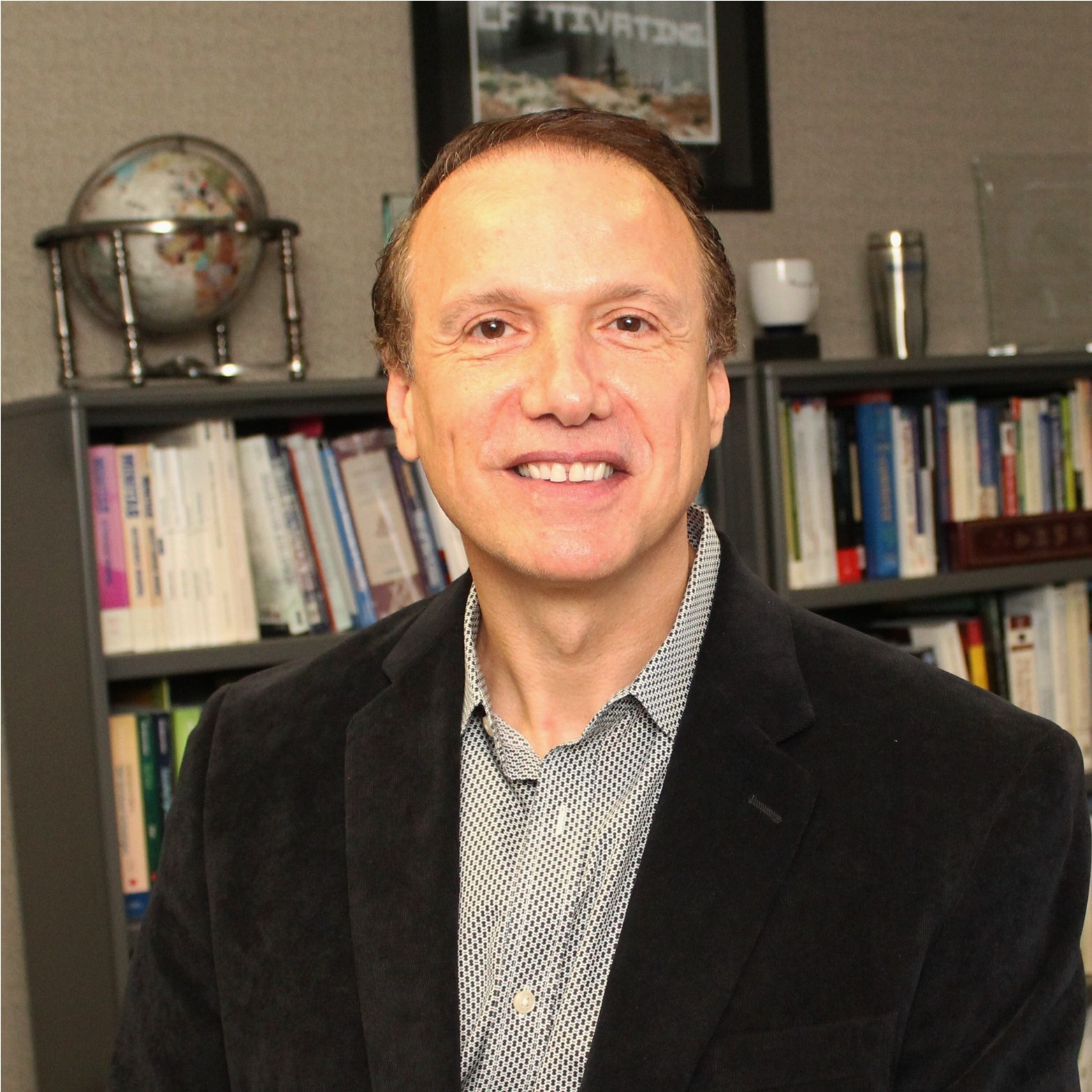 “The program is consistent with the University’s mission to create innovative, market-driven programs,” said Nabil Tamimi, Ph.D., professor and chair of the Operations and Analytics department. “We also have a graduate certificate in business analytics, because you will always have a segment of the business community who want to get a micro-credentialing certificate to advance their knowledge.”
“The program is consistent with the University’s mission to create innovative, market-driven programs,” said Nabil Tamimi, Ph.D., professor and chair of the Operations and Analytics department. “We also have a graduate certificate in business analytics, because you will always have a segment of the business community who want to get a micro-credentialing certificate to advance their knowledge.”
Business analytics is also a designated STEM field, which is especially attractive to international students who can secure extended visas if they elect to work in the field - a win-win for both them and their employers, said Mark Higgins, Ph.D., dean of the Kania School.
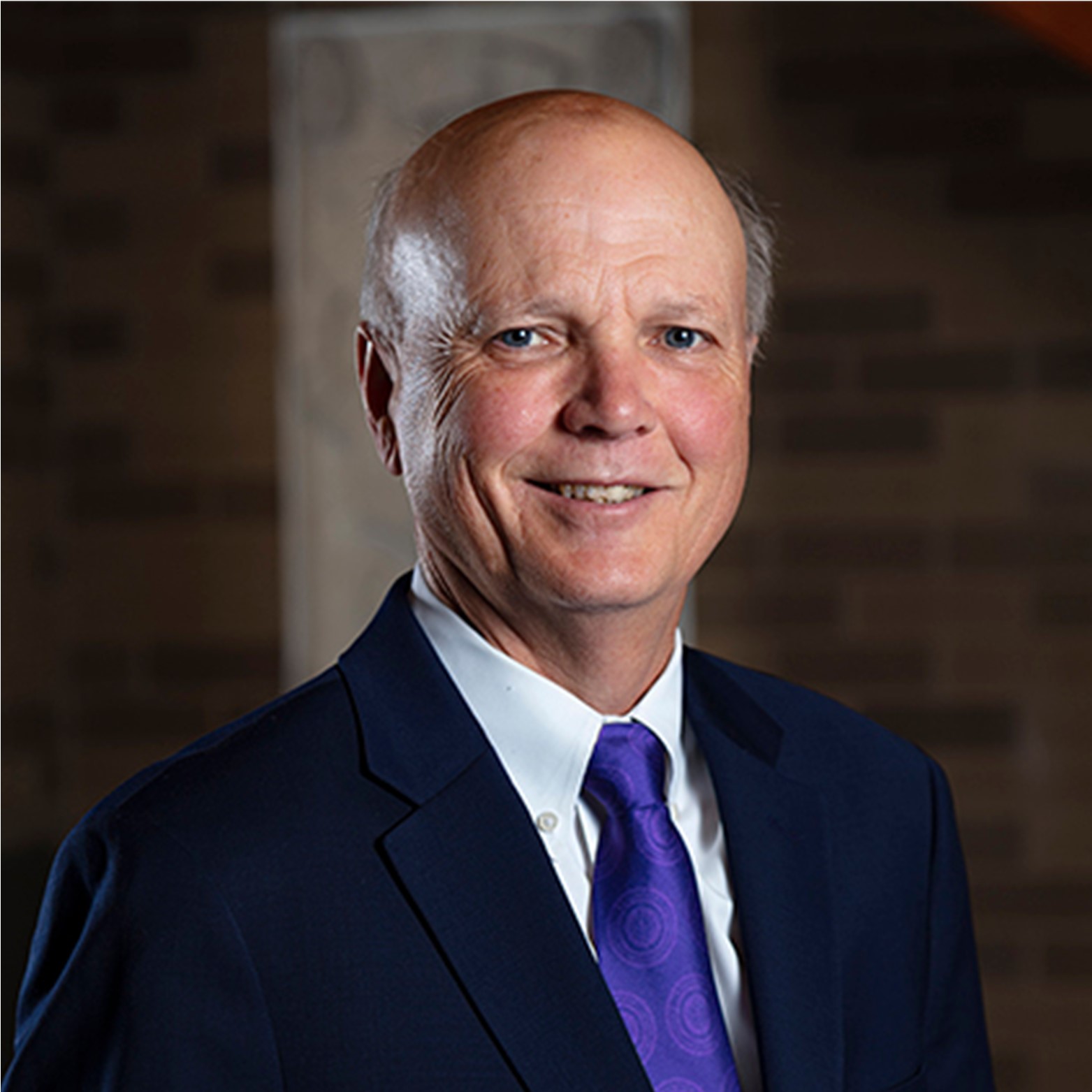 “Nabil and his faculty have done an outstanding job with the program and with the students,” Dr. Higgins said. “We’re also seeing a lot of students who are pursuing their MBA who are picking business analytics as their concentration. And there’s an analytics track for the Master of Accountancy, and we hope also finance, so it’s helping to draw people to those degrees, too.”
“Nabil and his faculty have done an outstanding job with the program and with the students,” Dr. Higgins said. “We’re also seeing a lot of students who are pursuing their MBA who are picking business analytics as their concentration. And there’s an analytics track for the Master of Accountancy, and we hope also finance, so it’s helping to draw people to those degrees, too.”
Currently, about 150 students are enrolled in the program, with the majority taking courses on campus. Many of them are from India, including Varshenne Reddi, who decided to pursue the degree after receiving a master’s in business administration from the University of Rome in Italy.
 “Of all the different programs I came across, The University of Scranton’s checked all of the boxes for what I wanted,” Reddi said. “I really like the course curriculum because it allows you to learn different types of software. Another reason was the faculty members; when I looked at their backgrounds, I was very encouraged by their research interests. And they are student-friendly and down to earth, which I also appreciate.”
“Of all the different programs I came across, The University of Scranton’s checked all of the boxes for what I wanted,” Reddi said. “I really like the course curriculum because it allows you to learn different types of software. Another reason was the faculty members; when I looked at their backgrounds, I was very encouraged by their research interests. And they are student-friendly and down to earth, which I also appreciate.”
The program also gives students the chance to apply their knowledge in a real-world context via the capstone course taught by the University’s Executive in Residence, Albert Turano, senior director of global professional services at Dell Technologies.
Based on the undergraduate course Turano teaches on the big data ecosystem, the capstone is geared around real business cases and culminates with a project where students are tasked with creating a “smart” future society.
M.S. in Speech-Language Pathology
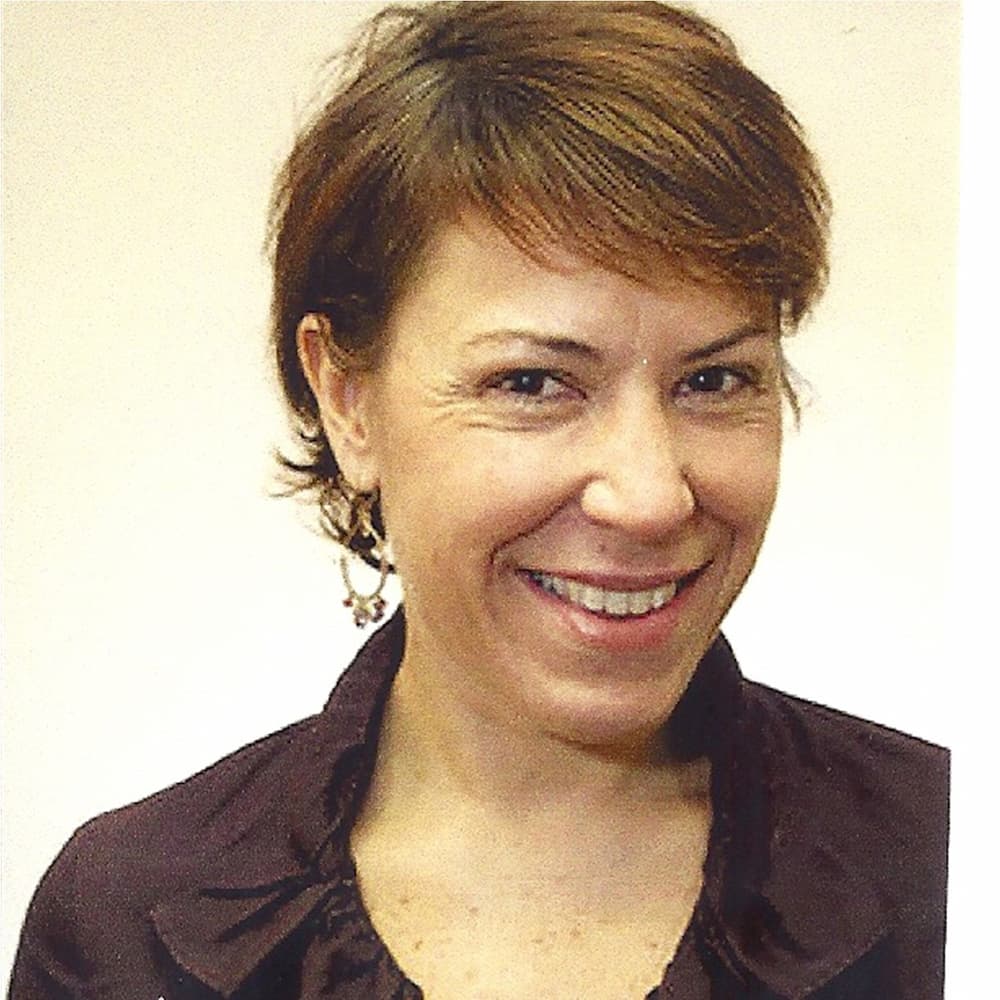 The 63-credit MS in Speech-Language Pathology (SLP) in the University's Panuska College of Professional Studies is currently an applicant for candidacy by the Council on Academic Accreditation (CAA) in Audiology and Speech-Language Pathology of the American Speech-Language-Hearing Association.
The 63-credit MS in Speech-Language Pathology (SLP) in the University's Panuska College of Professional Studies is currently an applicant for candidacy by the Council on Academic Accreditation (CAA) in Audiology and Speech-Language Pathology of the American Speech-Language-Hearing Association.
With approval, the program will launch this fall, said Hope Baylow, D.A., assistant professor in the Department of Health and Human Performance.
A longtime professional in the field, Baylow was hired in 2020 to serve as the founding director of the Communications Sciences and Disorders (CSD) undergraduate program and the SLP program, both of which the University established to address the growing need for professionals in the field. In just the past year, the CSD program has seen a 41 percent increase in qualified applicants, according to Victoria Castellanos, Ph.D., dean of the Panuska College.
“We had a very successful candidacy site visit by CAA in September 2022. They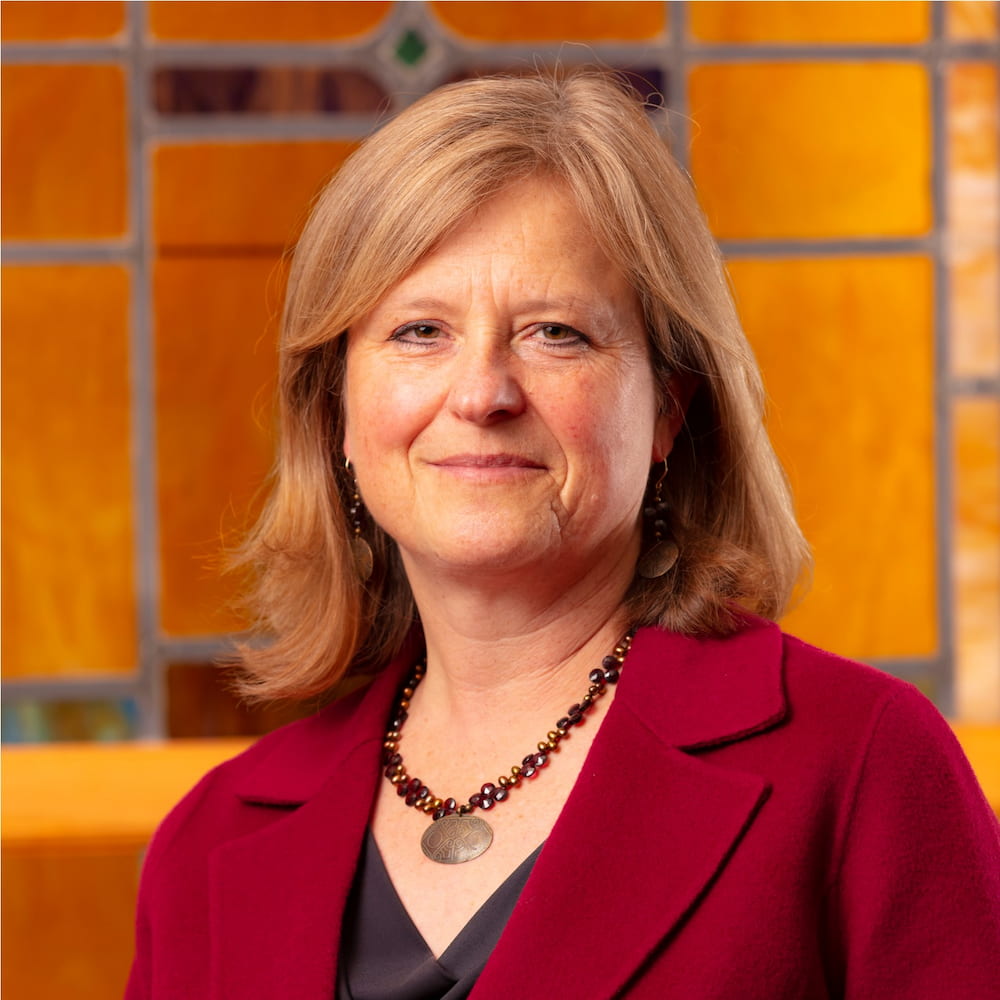 commented on the terrific job Dr. Baylow did in preparing the candidacy accreditation documents and how much of an asset she is for the University,” Dr. Castellanos said. “Dr. Baylow has a tremendous amount of energy to go along with her extensive clinical and academic experience. I’m very proud of the SLP program that Hope and her colleagues have put together — it’s met or exceeded all our expectations.”
commented on the terrific job Dr. Baylow did in preparing the candidacy accreditation documents and how much of an asset she is for the University,” Dr. Castellanos said. “Dr. Baylow has a tremendous amount of energy to go along with her extensive clinical and academic experience. I’m very proud of the SLP program that Hope and her colleagues have put together — it’s met or exceeded all our expectations.”
Conceived as a “blended” learning environment, the program’s coursework will primarily be delivered online synchronously (i.e., live). On the experiential side, students will complete a summer residency at the Scranton School for Deaf & Hard of Hearing Children and gain additional clinical experi-ence within their home communities.
Students can also complete an additional 10 credits to ob-tain a healthcare specialization. “I took all that I like from my experiences in the field and what I think is most appropriate for our profession and the University,” Dr. Baylow said. “I think our program is going to stand out. I think with the synchronous interactive model, we’re be-ing extremely creative in how we’re going to deliver the education to students. We have state-of-the-art software and tools we’ll be able to use. It’s going to be a very unique program.”  Twenty students will be selected for the program’s first cohort. Gia Maayan ’23, a senior majoring in health promotion (formerly community health education), is among those applying.
Twenty students will be selected for the program’s first cohort. Gia Maayan ’23, a senior majoring in health promotion (formerly community health education), is among those applying.
Maayan said she was inspired to pursue a career in speech-language pathology after taking one of Baylow’s courses.
“It was one of my favorite classes — I just love the way Dr. Baylow teaches. I enjoy learning how people process things differently and how language is processed differently,” Maayan said. “It would be nice to stay in Scranton and continue my education here. I love the campus, the size of it, the people. There are always places to get help. And I think the values of a Jesuit education are great.”
Lepka echoed that sentiment.
“I think the University is very in tune with what’s happening in the world — and that’s definitely reflected in their programs,” she said.



